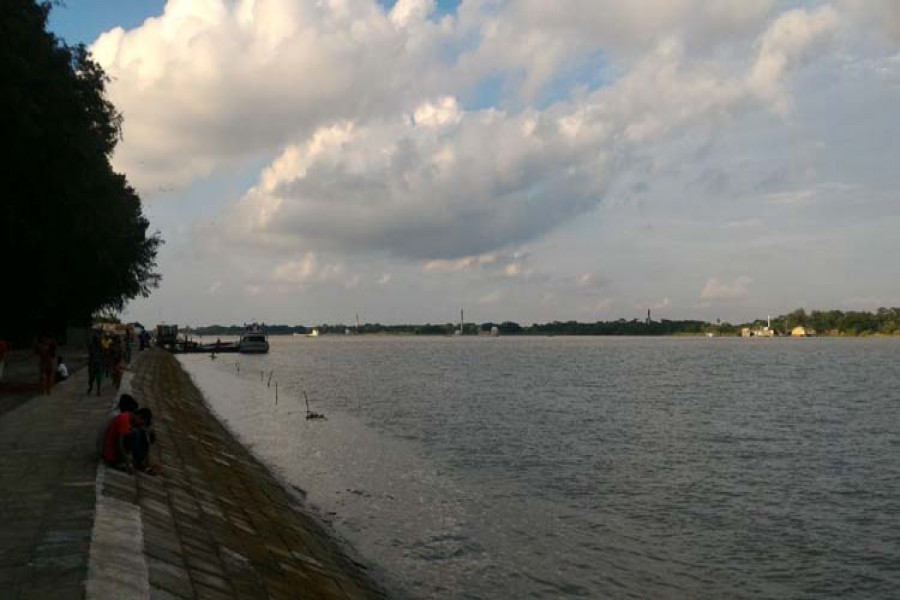The river Kirtonkhola that once brought Barishal town - now city - the enviable sobriquet 'the Venice of Bengal' is in bad health. Intrusion of saline water from the sea has long been a serious problem in the coastal areas of the south and south-west of Bangladesh, but never before did Kirtonkhola make news for excessive salty water. For the past few days, both electronic and print media have been carrying news of salinity in Kirtonkhola's water. Reportedly people using the river's water for various household chores or taking bath in it can readily feel the presence of saltiness. When they splash their face with the river's water, they feel it and they also feel it when they taste it. This is quite alarming, no doubt, but it does not give a measure of the intensity of saltiness. This should be measured scientifically.
A study conducted in 2014 by a group of experts of the Institute of Water Modelling in Bangladesh in collaboration with Professor Ainun Nishat to analyse the vulnerability of the coastal regions to intrusion of saline water by 2050 has presented a disquieting picture. The number one finding is that sea-level rising will definitely continue well beyond 2100 even if greenhouse gas emissions stopped. Kirtonkhola's ailing health certainly owes to the climate change that has, since the study was completed, been behaving more erratically than ever before. The study rightly concluded that even in the best case scenario, fresh water river zones will be entirely lost in Barguna, Patuakhali, Jhalakathi and Khulna. In the worst case scenario, 90 per cent fresh river water in Pirojpur, Bagerhat and Barishal will be at serious risk. Its attendant ills can easily be guessed but presently suffice it to say that a disastrous spectre looms in the horizon.
Two-thirds of the entire land mass of Bangladesh are less than five metre above the sea level. The coastal areas including Barishal, therefore, are more vulnerable to sea-level rising. But that the saline water from the sea has already started damaging the quality of fresh water of Kirtonkhola was beyond imagination. As a nation, the Bangladeshis are not particularly famous for preserving their natural environment. Dhaka's lifeline-famed the Buriganga has been strangulated to its last gasp. All other rivers also face similar maltreatment from the people. Encroachment of rivers and exploitation of their resources including sand and dumping of all kinds of solid and liquid waste into them have only exacerbated their conditions.
About 60 to 70 years back, even the slimmest river of today flowed robustly and water quality was so good that many people used to drink directly from rivers. Not only have many such rivers died but most rivers are highly contaminated. Kirtonkhola also suffers the ill effects of modernisation that has introduced chemical fertiliser, pesticide, plastic and polythene bags - the residues and rejected materials of which find unwelcome shelter in the river. Sure enough, the present precarious salinity has also been caused by total absence of rains. The high summer has already caused the water levels of all rivers to get lower and it is only natural sea water will intrude in such a situation. There is no alternative to arresting global warming if the inhabitants of the planet want to preserve even a semblance of natural environment for their survival and sustenance.


